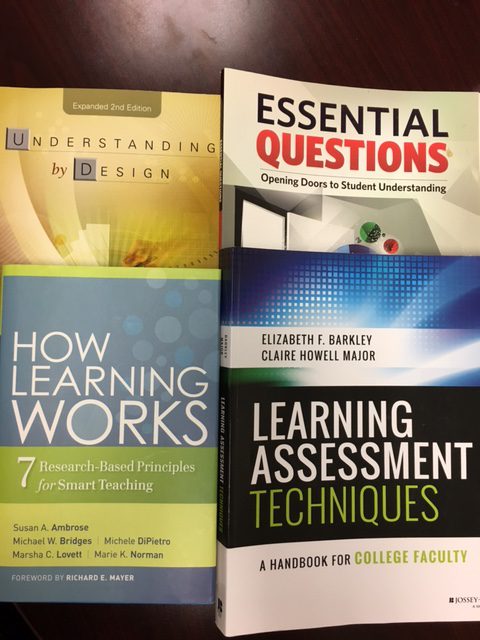Notes and Resources from LIT Workshop, May 5, 2017. There is also a self-paced course in Blackboard available to all Wentworth instructors. Check the Faculty Resources Tab for more information.
View the Recording of the session
Use the basic template to provide structure to your course.
As part of the Bettering Learner Engagement Study (B.L.E.S.) with the Colleges of the Fenway as well as focus group comments gathered during the website redesign project, we have found that students want a consistent structure in Blackboard courses across the Institute. In addition, a consistent structure benefits students with disabilities. Consistent structures are less confusing for students with learning disabilities. Visually impaired students can listen for specific menu options.
Within the basic template you can organize materials in a variety of ways that adapt to your content and your way of teaching but still provide a level of consistency that students want.
Some suggestions:
- Use the Read Me – Students section to post your syllabus, course schedule, and other critical documents that students need to reference repeatedly during the semester.
- Post course content – files, links to outside resources, assignments, tests, etc in the Course Materials section. Within this section you can organize the content by week, topic area, or some other organizing theme. The idea is be consistent and group all items that belong together in a single folder or hierarchically organized folders.
- If you use Blackboard tests on a regular basis, you may want to provide a menu item for “Tests” and in that contact area create links to the various tests. This type of alternate navigation can be useful especially if students are taking these tests in class rather than outside of class time.
- Use the grade center to post grades even if you don’t use Blackboard tests or assignments. You can upload grades for students to view.
- Do not remove the Grades link. Students who regularly check grade, know how well they are doing and tend to do better than those who do not check grades.
Creating Accessible Content
Creating accessible documents follows the same principles as creating an accessible syllabus.
Creating an Accessible Syllabus- Atomic Learning Playlist
Syllabus Template from Wentworth Academic Affairs
Best Practices for Content
Rename files so students can identify their contents from the name. At least one study has shown that there is no correlation between time in an LMS course site and final grade. One reason for this is that students often download content at the start of a course and use those locally saved copies rather than navigating the course site each time they need a file. To facilitate easier use of course files downloaded from a course site consider using consistent naming conventions.
Suggested Naming of files that are uploaded to Blackboard
- DEPT-1234-01 Term Year – short descriptive name.docx
- MGMT-3050-01 Fall 2017 – Syllabus.docx
- MATH-1025-15 Fall 2017 – Week 1 homework problems.pdf
- ENGR-1000-05 Fall 2017 – Lab 1 Instructions.pdf
- COMP-2505-02 Fall 2017 – Week 2 – Basic HTML 5 codes required reading.pdf
Cautions: Do not use unsupported characters in file names. Limit special characters to dashes (“-“) and underscores (“_”). Other special characters can lead to retrieval problems.
When uploading files to Blackboard use the add item option and add to the text box under “Content Information” descriptive information to provide context for the item.
- Is this file:
- A reading?
- Homework assignment?
- A spreadsheet needed to complete a homework assignment?
What is the context of the file:
- Is the reading/homework required or optional?
- What should students pay attention to in a reading?
- What does this document provide that the textbook/lecture does not?
Post Grades
Posting grades is an easy way to provide students with important information about their course performance. Even if you do not use Blackboard’s grade center to calculate grades, upload grades to the grade center for student reference.
Assessments
An additional way to provide feedback to students is through the use of rubrics. If you already use Blackboard assignments, then adding rubrics is not hard. Rubrics provide critical feedback so students can see how their work measures up against a set of objective criteria. If you use rubrics already, we urge you to make them visible to students if you don’t already do so.
Some departments have rubrics created and ready to upload to your course on the Faculty Resources tab in Blackboard, otherwise, you can create your own.
If you use Blackboard tests or if you give in class paper and pencil multiple choice type exams, consider providing practice tests in Blackboard. Blackboard gives instructors the option to designate tests as practice and therefore exclude them from grade calculations. Practice tests can reduce test anxiety for students by providing evidence (and reassurance) that they have learned the course content.
